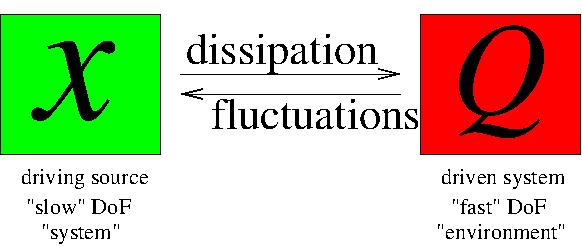Quantum dissipation due to the interaction with chaos (2001-2004)
Driven chaotic systems are of interest in mesoscopic physics, as well as in
nuclear, atomic and molecular physics. Such systems [coordinates Q] tend
to absorb energy. This irreversible effect is known as dissipation. "Driving"
means that a parameter x is changed in time. More generally, x may be a
dynamical variable. In such case the interaction of x with the
environmental degrees of freedom Q leads to dephasing as well as to
dissipation. We introduce a general framework for the analysis of dissipation
and dephasing, and we clarify the tight connection to recent studies of quantum
irreversibility (also referred to as "Loschmidt echo" or as the "fidelity" of
quantum computation). Specific model systems that will be presented are:
particle in a box driven by moving a wall, and particle in a box/ring driven by
electro-motive-force. These two examples are related to studies of nuclear
friction and mesoscopic conductance.

[1]
D. Cohen, lecture notes of course in the 2002 Karpacz school, Springer (2002). [arXiv]
[pdf]
[2] D. Cohen and T. Kottos, Phys. Rev. E 69, 055201(R) (2004). [arXiv]
[pdf]
[3] D. Cohen, Phys. Rev. E 65, 026218 (2002). [arXiv]
[pdf]
